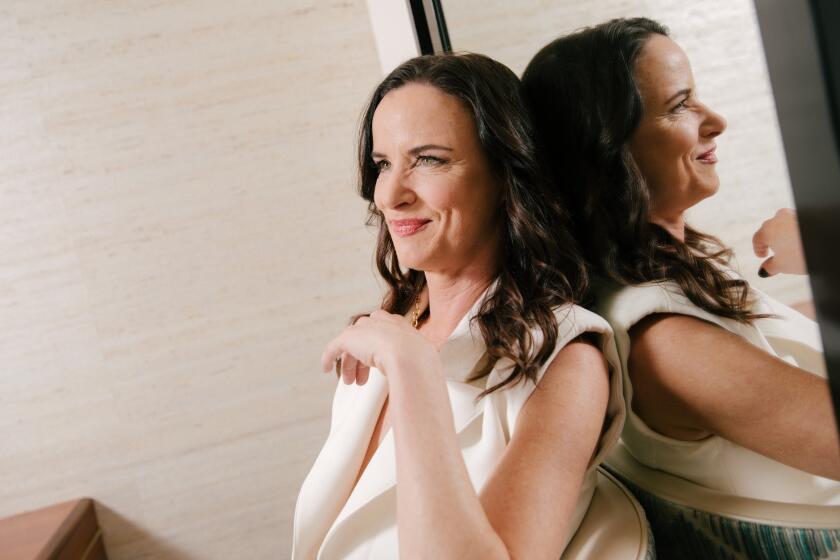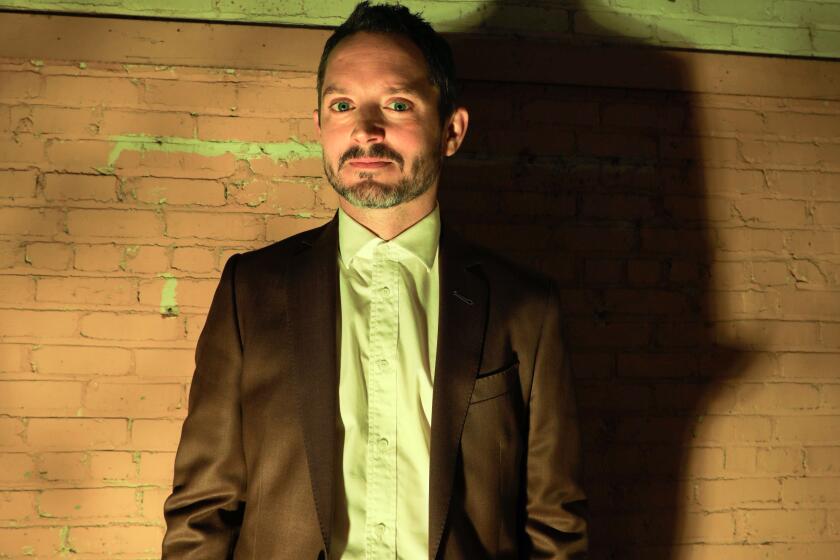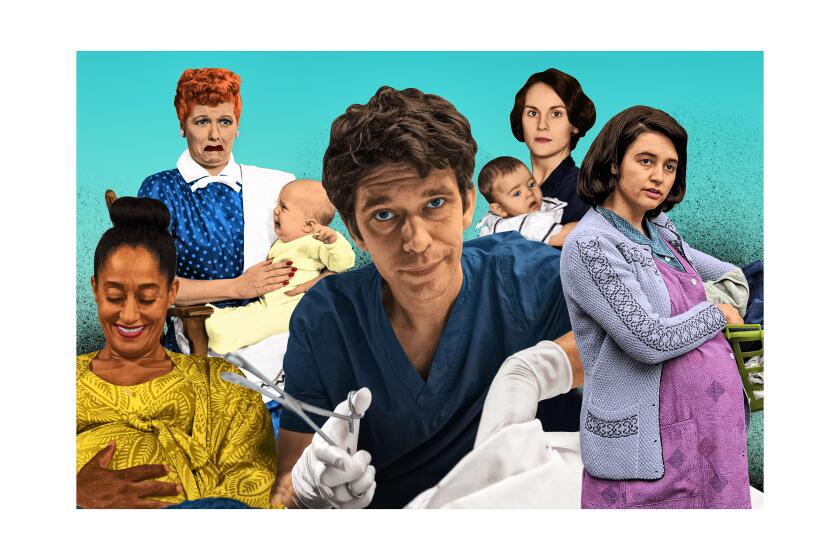In ‘Yellowjackets,’ as in America, the dangers of childbirth are all too real
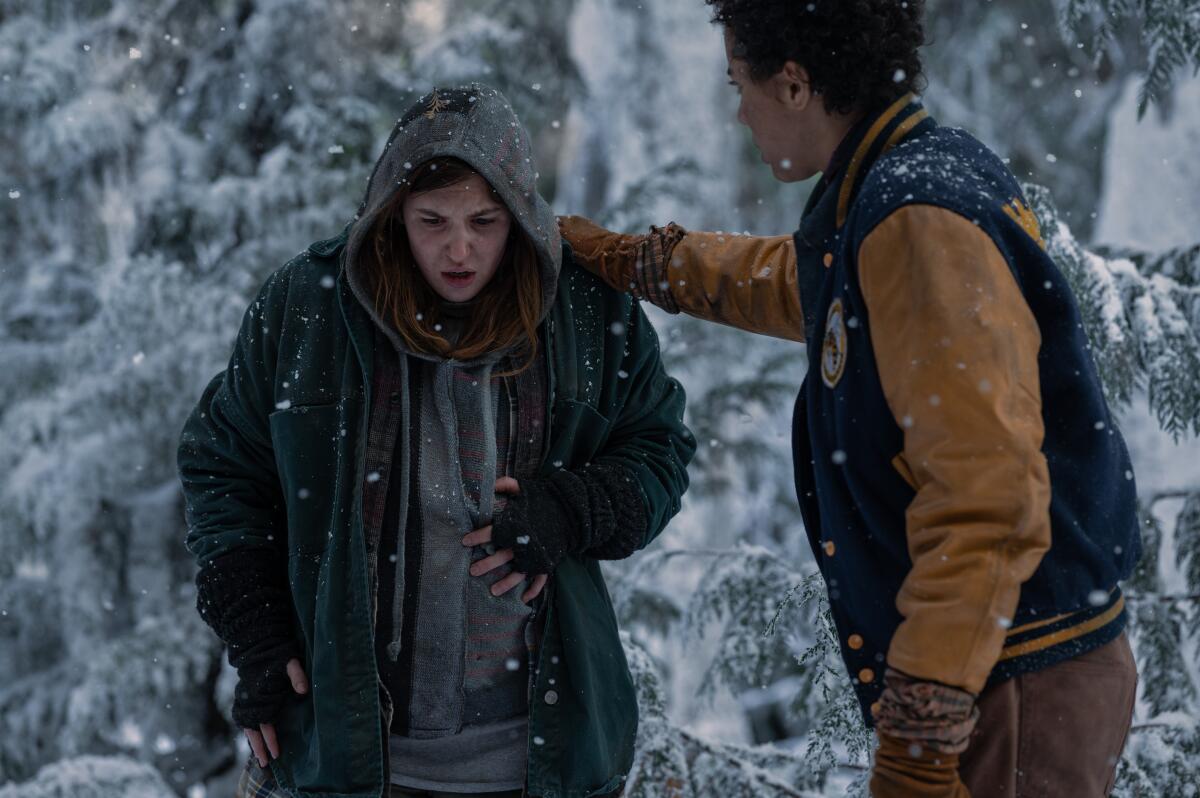
- Share via
This article contains spoilers for Episode 6 of Season 2 of Showtime’s “Yellowjackets.”
Childbirth is typically a joyous event. When a pregnancy is uncomplicated, birthing a child, despite the pain and discomfort, is a moving experience that changes your life forever.
However, for some women, particularly those in America — where the maternal mortality rate is 10 times the estimated rate for other high-income countries like Australia, Israel and Japan — it can be a terrifying ordeal marked by medical complications and emotional trauma, long and short term, for mother and baby alike. That’s precisely what makes “Qui,” the most recent episode of Showtime’s “Yellowjackets,” so horrifying: It’s not far-fetched at all.
The show relies on supernatural elements, including some very gruesome ones, to convey the plot. And for this particular episode, we are taken through more than one version of what happened to Shauna’s baby, which has been the subject of many theories throughout the series. But the real conclusion to the story, as it turns out, is more logical than fans might have anticipated: Her baby is stillborn. We know the girls are on the brink of starvation, despite having feasted on Jackie’s decomposing body. Trapped in the wilderness, Shauna has no access to prenatal or medical care, save for Misty’s basic first aid skills. At one point, she attempts to end the pregnancy with Taissa’s help, but she’s unable and unwilling to go forward with it.
The actor, who plays Natalie in the hit Showtime series that returns on Sunday, discusses her offbeat roles and how her attitude toward her career has evolved.
The feeling of carrying a child is unique, and while not everyone who is pregnant feels a bond with the child forming inside of them, you think about what it will be like once they are on the outside. Or at least I know I did. That person whose movements you once felt in your belly — to see them on the outside is a breathtaking, wonderful feeling. I don’t believe there is anything comparable to it.
And we get to see Shauna’s experience of having the baby, in both what appears to be reality and a fever dream. It’s scary in different ways. Knowing what happened to Jackie, there exists the possibility that her teammates could, again, resort to cannibalism. Or that the girls, Lottie in particular, would try to perform some sort of ritual involving the baby.
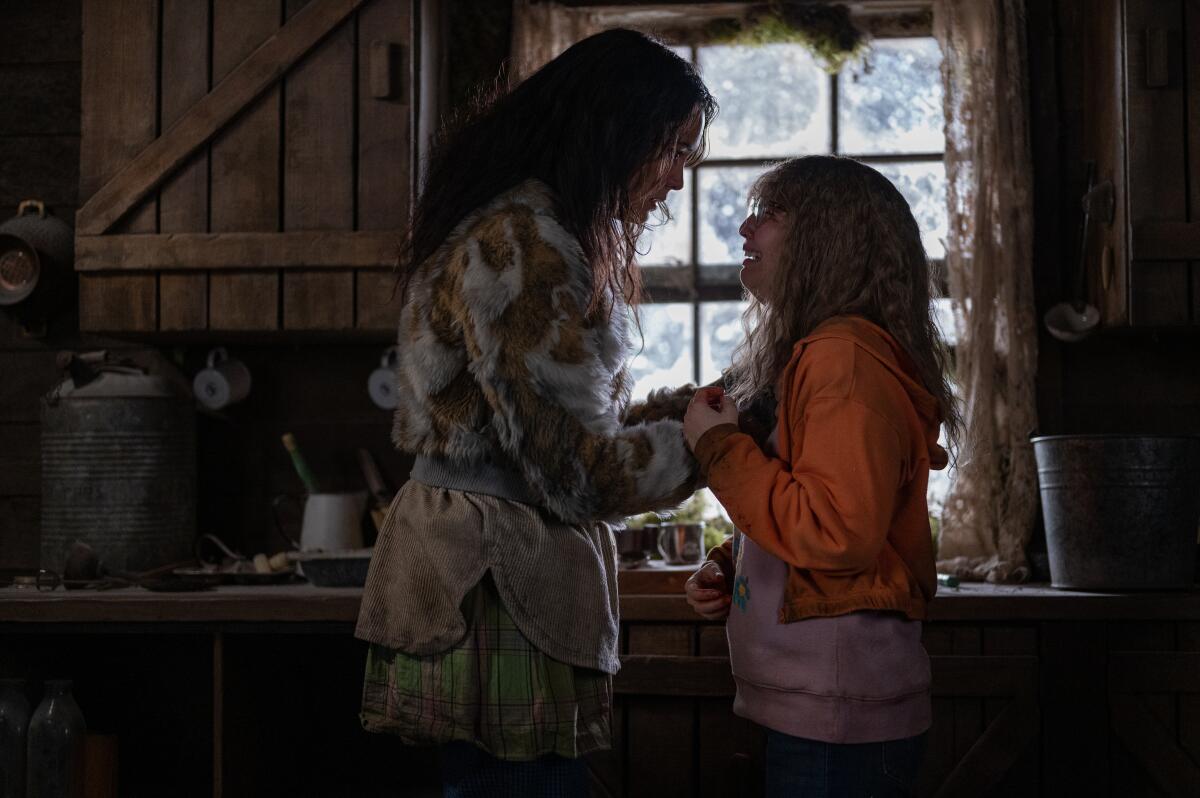
Part of what makes Shauna’s fears about these grisly outcomes so immediate is that they’re preceded by highly relatable scenes of her caring for, and protecting, her newborn. Already trying to make it through a brutal winter in the wilderness with little food and little help, Shauna must add surviving the first days of parenthood. It’s exhausting and stressful work. She’s recovering from birth. And she’s trying to breastfeed a hungry baby who won’t latch. “I love you so, so much,” she says, giving him a pep talk. “And I can’t wait to see who you become, where you’ll go, what you’ll do. But it all depends on this, on us, figuring this out.”
The ‘Lord of the Rings’ star, who plays Walter in Season 2 of Showtime’s drama, on his true-crime obsession, reuniting with Christina Ricci and more.
Perhaps it’s the episode’s movement between the most extreme terrors of Shauna’s situation and the more commonplace ones that makes the truth of what actually happens to the baby so heartbreaking. Throughout the episode, Shauna is in labor, struggling to push. She’s bleeding heavily. Not even Misty, who has seen and dealt with some pretty serious injuries, can handle it. They try to get Ben to help, to no avail, until Akilah finally steps in. We see the placenta, which is typically delivered after a baby is born. The complication, known as placental abruption, can lead to stillbirth. And that’s precisely what happens.
Shauna passes out and awakens — after a fever dream in which she sees the girls covered in blood — frantically asking for her baby.
“He didn’t make it, Shauna,” Taissa tells her. She hands Shauna the baby, wrapped in a brown pelt. Shauna pulls back the fur and begins sobbing. We don’t see his body. “He was crying. I can still hear him cry,” she says. She repeats to the others: “Why can’t you hear him cry?”
That this is the end result is not surprising, given the circumstances, but it’s nonetheless gut-wrenching. To go this far, to survive this long, only to lose the baby in the end is devastating. Sadly, in real life, it happens more often than is talked about. A recent report by the National Institutes of Health, a federal agency that conducts and supports medical research, called the stillborn rate in America “unacceptably high.”
‘This Is Going to Hurt’ created TV’s most accurate portrayal of childbirth — and its ‘sticky, sweaty, bloody’ vision could change the conversation.
With more women and mothers joining the ranks of television production, and having the power to decide how pregnancy and childbirth should be portrayed, we’ve already started to see a raft of more realistic depictions — “Dead Ringers” is another recent example.
What “Yellowjackets” adds to the conversation is the acknowledgment that Shauna, like too many women in the U.S. and around the globe, never had choices. Even if she wanted to end the pregnancy, it‘s not a viable option. And when she has the baby, she doesn’t have adequate medical attention or support.
“Yellowjackets” didn’t need to portray childbirth with supernatural elements. In America, it’s plenty horrific all on its own.
More to Read
The complete guide to home viewing
Get Screen Gab for everything about the TV shows and streaming movies everyone’s talking about.
You may occasionally receive promotional content from the Los Angeles Times.
